Exploring Financing Options for Small Businesses
Lets Get Started
Securing adequate funding is crucial for small business owners and entrepreneurs, whether it’s for starting a new business, expanding operations, or covering day-to-day expenses. With a wide array of financing options available, it’s essential to explore and understand the different choices to find the best fit for your business needs. This blog post will discuss various financing options for small businesses, including advances, bank loans, SBA loans, microloans, factoring, crowdfunding, and more.
Bank Loans
A Common Financing Option for Small Business Owners
Traditional bank loans are popular for small business owners seeking working capital, equipment financing, or commercial real estate funding. Banks offer various types of loans, including term loans and business lines of credit, with competitive interest rates and repayment terms.
With traditional small business loans, the borrower receives a particular loan amount up front and makes monthly payments over an agreed-upon length of time, repaying the loan plus interest.
Application Process and Eligibility
The application process for a traditional bank loan can be quite lengthy and typically requires a comprehensive business plan, financial statements, and tax returns. Banks will also consider your business and personal credit scores and your credit history when evaluating your loan application. Depending on the loan type, a down payment or collateral is often required.
Pros and Cons of Bank Loans
While bank loans may appear attractive due to lower interest rates than other financing options, the application process can be time-consuming, and approval rates for small businesses can be shockingly low, especially for startups with limited financial history, plus the time close is often 6-10 weeks.
Small Business Administration (SBA) Loans
Government-Backed Loans for Small Businesses
SBA loans are government-backed loans provided by the U.S. Small Business Administration to support small businesses. These loans are offered through various financial institutions, including banks and credit unions, with favorable terms, lower interest rates, and longer repayment periods than traditional bank loans.
Types of SBA Loans
The three main types of Small Business Administration (SBA) loans are the 7(a) loan, 504 loans, and the microloan.
The 7(a) loan is the most popular and versatile among the three. It’s designed to support a wide range of small business needs, from working capital to purchasing equipment or real estate.
The 504 loan is specifically for purchasing fixed assets like real estate or large equipment. It’s structured as a collaboration between the SBA, a Certified Development Company (CDC), and a traditional lender. The CDC typically covers 40% of the project costs, the lender provides 50%, and the borrower contributes a 10% down payment.
Lastly, SBA microloans are smaller loans, with a maximum amount of $50,000, designed to help startups and small businesses with smaller financial needs. The SBA provides funds to intermediary lenders, like nonprofits, who then lend the money to small businesses. These loans can be used for working capital, inventory, or equipment but not for purchasing real estate or consolidating debt.
Application Process and Eligibility
The application process for an SBA loan is similar to that of a traditional bank loan, requiring a detailed business plan, financial statements, and tax returns. The SBA will also review your credit score and history. While SBA loans are slightly more accessible than traditional bank loans, they often still require collateral or a personal guarantee.
It’s also important to remember, a big drawback to SBA loans is the lengthy loan closing processes which can take up to 90 days.
Merchant Cash Advances
Fast, Simple Option for Any Type of Business
Merchant cash advances (MCAs) are not loans. Instead, they’re a type of financing in which a cash advance provider purchases a percentage of your company’s future revenue, providing the recipient merchant with a lump sum.
MCAs are then repaid using a portion of every transaction, known as a holdback, instead of monthly payments. And instead of interest rates, MCAs come with a factor rate. When multiplied by the advance’s size, that number dictates the merchant’s obligation to the funder.
Pros and Cons of MCAs
The biggest pros of MCAs are their speed and flexibility. Because MCAs are dependent on revenue and not bad or good credit, no hard credit inquiry is needed. Typically, an MCA provider may make an offer based on bank statements alone, without needing to see business plans, tax documents and other documentation required with bank loans and SBA loans. In addition, the fact that payments are based on sales volume means that if you have a down month, your obligation also goes down. Nor will you be scraping to make a large monthly payment since most MCA providers work on smaller, easier to digest daily payments.
Another thing to consider is that MCAs allow you to spend on anything to support your business – working capital, payroll, equipment, inventory, repairs, renovations, you name it. And nearly any business with at least three months of revenue can qualify.
Business Lines of Credit
A Flexible Financing Solution for Small Business Owners
Business lines of credit are a versatile financing option for small business owners who need access to working capital, inventory purchasing, or covering short-term cash flow gaps. Unlike traditional term loans, business lines of credit provide borrowers with a predetermined credit limit, allowing them to draw funds as needed and only pay interest on the amount utilized.
With a business line of credit, borrowers can access funds repeatedly up to their credit limit without reapplying, offering flexibility in managing business expenses and opportunities for growth.
Pros and Cons of Business Lines of Credit
Business lines of credit provide flexibility in usage, lower interest rates compared to credit cards, and the ability to manage cash flow more effectively. However, the application process can be lengthy and approval may be challenging for startups or businesses with a limited financial track record. Additionally, interest rates may be higher than those for traditional term loans, and borrowers must be disciplined in managing their credit lines to avoid overextending their finances.
Microloans
Financing Option for Small Loan Amounts
Microloans are small loans, typically ranging from $500 to $50,000, designed to meet the needs of startups, entrepreneurs, and small businesses with limited funding requirements. These loans are often provided by nonprofit organizations, credit unions, and online lenders. They’re also often short-term compared to other forms of business lending, so they may not be suitable for large, expensive purchases that are better served with long-form business funding.
Pros and Cons of Microloans
Microloans offer more lenient eligibility criteria than traditional loans, making them an ideal option for new businesses or those with a limited credit history. However, microloans usually come with higher interest rates and shorter repayment terms compared to traditional loans.
Also, the Corporate Finance Institute warns that recipients often report too much pressure to repay loans causing a large suicide rate among borrowers, and severe debt levels.
Invoice Financing and Factoring
Non-Loan Financing Solutions for Businesses with Cash Flow Challenges
Invoice financing and factoring are financing options that provide businesses with immediate cash based on their outstanding invoices or accounts receivable. These options help businesses maintain a steady cash flow by unlocking funds tied up in unpaid invoices.
Invoice Financing vs. Factoring
Invoice financing allows businesses to borrow money against outstanding invoices, while invoice factoring involves selling the invoices to a financing company at a discount. In both cases, businesses receive a lump sum upfront, but with invoice financing, the business remains responsible for collecting payments from customers.
Often, invoice factoring is is not an option if you sell items or services to the general public making it very limited on businesses that can qualify. Moreover it is important to understand the interest and processing fees that come with this type of financing, as they are often quite high.
Business Credit Cards
Flexible Financing Tool for Small Business Owners
Business credit cards offer a revolving line of credit that can be used to cover a wide range of business expenses. They provide a flexible financing solution, allowing business owners to make purchases and pay interest only on the outstanding balance.
Business credit cards work exactly like your personal credit cards: they can be used to make purchases on a wide variety of things up to a particular credit limit.
Pros and Cons of Business Credit Cards
Business credit cards often come with various rewards and perks that can benefit small businesses. However, they can also have extremely high interest rates and the majority of credit card issuers compound interest on a daily basis. This means that your interest is added to your principal (original) balance at the end of every day.
Crowdfunding Platforms
Alternative Funding Option for Startups and Entrepreneurs
Crowdfunding platforms, such as Kickstarter and Indiegogo, allow entrepreneurs to raise funds for their business ventures by collecting small contributions from a large number of people. These platforms enable businesses to showcase their products, services, or ideas and receive financial support from backers.
Types of Crowdfunding
There are several types of crowdfunding, including:
Reward-based crowdfunding: Backers receive a product or service in exchange for their contributions. But be sure to read the fine print, as some crowdfunding requires the full funding goal to be met to receive any funds and Entrepreneur reports between 69-89% do not meet their goal.
Equity crowdfunding: Backers receive a stake in the company in exchange for their investment. While the may seem like a good option in the short term, business owners find that they are often giving away far more in the long term.
Debt crowdfunding: Also known as peer-to-peer lending, businesses receive loans from individuals and pay interest on borrowed funds. Be sure to review the fine print – the fees and interest can be quite high.
Venture Capital and Angel Investors
With these types of investors, remember to think through the long term cost in terms of dilution of ownership and control, increased time commitment, higher expenses, and decreased long-term value. Moreover, you are no longer your own boss.
Equity Financing Options for High-Growth Startups
Venture capital and angel investors provide funding to startups and high-growth businesses in exchange for equity or ownership in the company. These investors are typically interested in businesses with high growth potential, innovative products, or services.
Venture Capitalists
Venture capitalists are professional investors who manage funds specifically dedicated to investing in startups and high-growth businesses. They typically invest large amounts of money and often provide strategic guidance, mentoring, and networking opportunities to help businesses grow and succeed.
Angel Investors
Angel investors are high-net-worth individuals who invest their personal funds in early-stage startups. They typically invest smaller amounts than venture capitalists and may offer mentorship and industry expertise to support the business.
Final Thoughts on Financing Options for Small Businesses
When exploring financing options for your small business, it’s essential to consider your business needs, the stage of your business, your credit history, and the amount of funding required. By understanding the various financing options available, from bank loans to crowdfunding, you can make informed decisions about the best funding solution for your business.
Remember to carefully weigh the pros and cons of each financing option, considering factors like interest rates, repayment terms, and eligibility requirements. Additionally, always thoroughly research funders and ensure that any agreements or contracts align with your business goals and objectives. With the right financing option, you can provide your small business with the necessary resources to grow and thrive.





